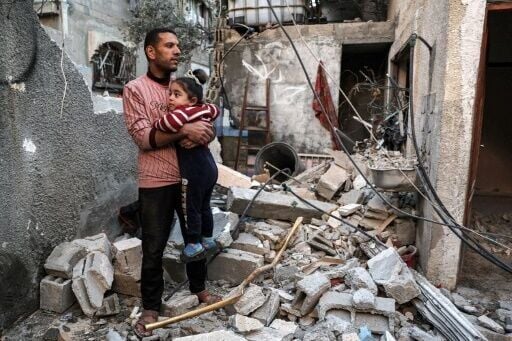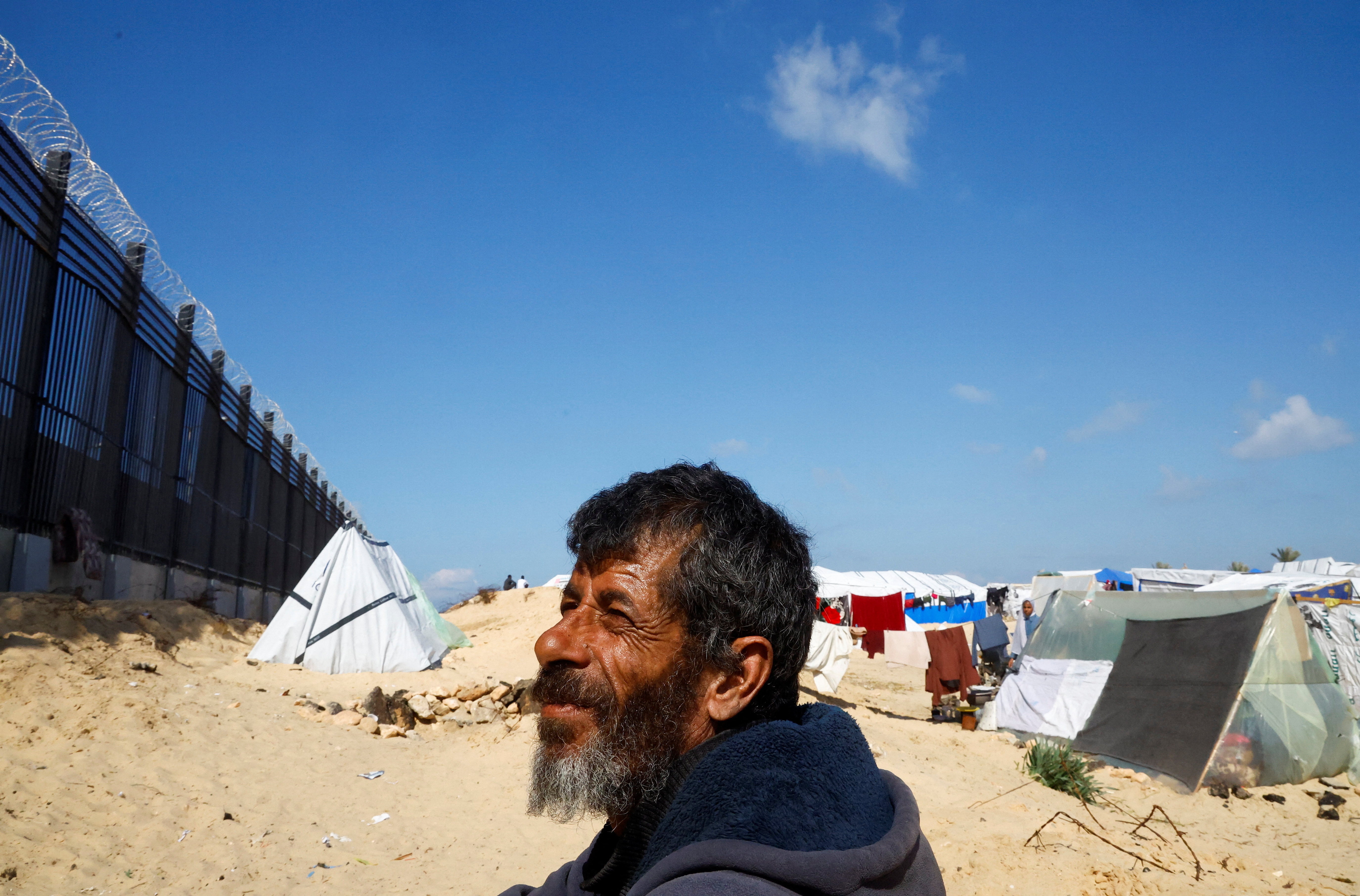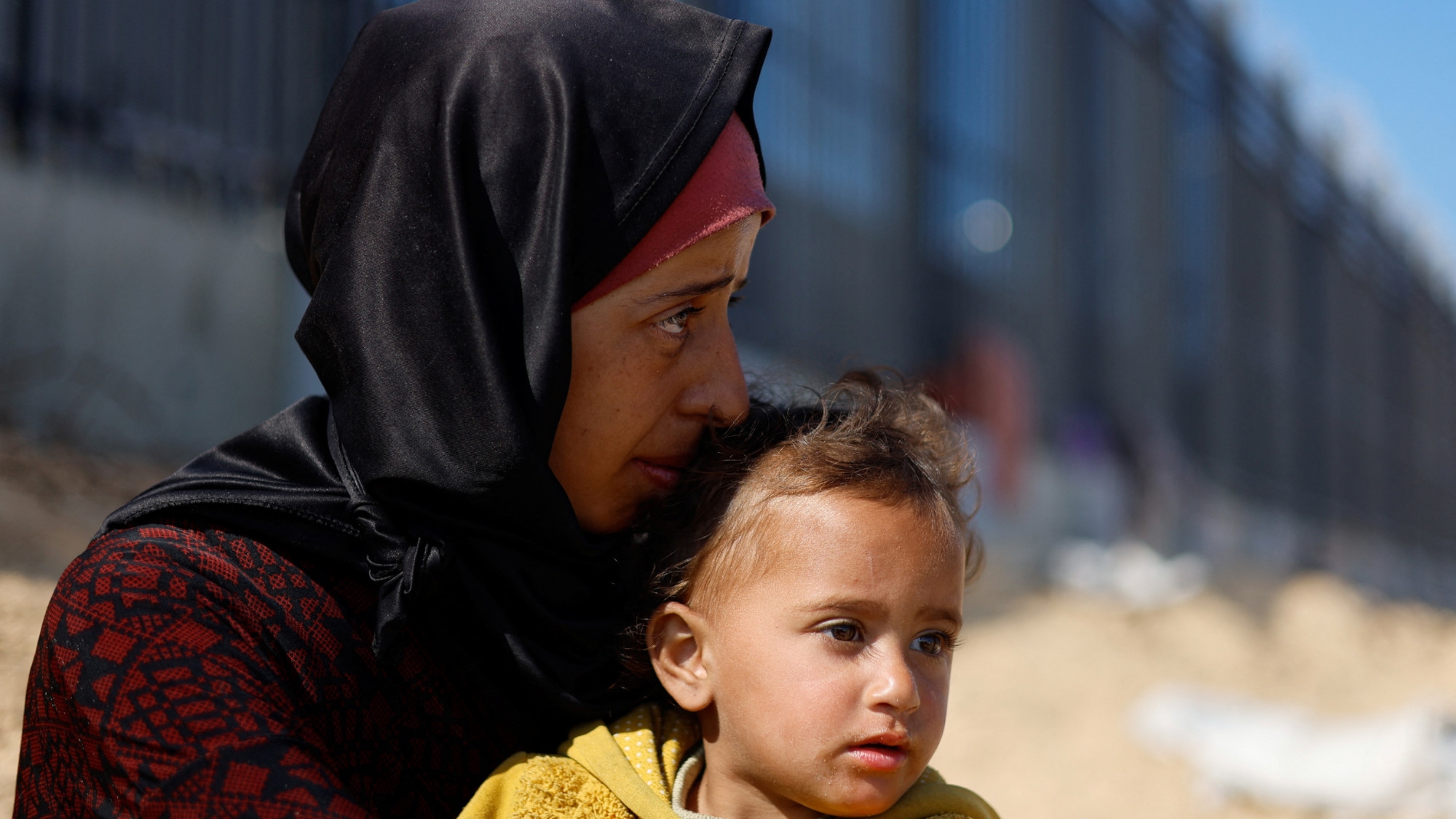News
Palestinians Sheltering In Rafah Fear Impending Israeli Ground Offensive

A Palestinian doctor in Rafah says locals are scared of an Israeli ground invasion in Gaza’s southernmost city following a night of some of the heaviest air strikes he has seen since arriving.
Dr Ahmed Abuibaid described the air strikes as relentless and widespread in a series of phone messages to the BBC overnight.
“[The] most popular question on people’s minds is, where can we go?” he said.
Last Monday, Israeli Prime Minister Benjamin Netanyahu declared that he had directed troops to prepare to expand their ground operation into Rafah.
Palestinians Sheltering In Rafah Fear Impending Israeli Ground Offensive
More than half of Gaza’s 2.3 million residents are now jammed into the city on Egypt’s border, which had a population of barely 250,000 before the Israel-Hamas war.
Many displaced people are living in improvised shelters or tents in deplorable conditions, with little access to safe drinking water and food.
On Monday, UN Human Rights Chief Volker Türk warned that an assault on Rafah would be “terrifying, given the prospect of an extremely high number of civilians, mostly children and women, being killed and injured.”
He also said that the “meagre” humanitarian aid being delivered to Gaza, which is now routed through the Egyptian-controlled Rafah border crossing, may end.
His warning comes after the US issued an unusually harsh critique of Israel’s military campaign in Gaza last week, with President Joe Biden calling it “over the top”. On Monday, Biden stated that Israeli actions in Rafah “should not proceed without a credible plan for ensuring the safety” of civilians.
Following a meeting with Jordan’s King Abdullah, Mr Biden stated that the US was working on a cease-fire agreement that would last “at least six weeks”.
Lord Cameron, the UK Foreign Secretary, has urged Israel to “stop and think seriously” before taking any additional action in Rafah.
On Monday, Josep Borrell, the EU’s foreign policy leader, urged Israel’s allies to cease delivering arms because “too many people” are being killed in Gaza.
In an interview with ABC News on Sunday, Mr Netanyahu stated that Israel was “working out a detailed plan” to relocate inhabitants to places north of the city.
“Victory is within reach,” he declared. “Those who say that under no circumstances should we enter Rafah are basically saying, ‘lose the war, keep Hamas there.'”
The Israeli military started a massive air and ground campaign in Gaza after Hamas terrorists killed over 1,200 people in southern Israel on October 7 and kidnapped 253 others.
According to Gaza’s Hamas-run health ministry, more than 28,100 Palestinians have been killed in the conflict since then.
Dr Abuibaid, one of the displaced individuals in Rafah, was forced to leave his job at Nasser Hospital in the nearby city of Khan Younis after his home was damaged by an Israeli air strike and his father suffered a devastating spine injury.
He now faces the potential of leaving Rafah, although it is still being determined where he may go safely.
“People are very scared about a possible military ground operation soon in the city,” he told reporters.
Overnight Israeli strikes on Sunday and Monday, carried out during an attempt to rescue two Israeli hostages, alarmed many people who had sought safety in the city.
Abo Mohamed Attya reported that he was sleeping in a tent with his family when he heard the bombing.
“Suddenly… missiles are being hit everywhere and firing as well and aeroplanes everywhere, all of this is on the tents and the people in the streets,” he was quoted as saying by the BBC.
Palestinians Sheltering In Rafah Fear Impending Israeli Ground Offensive
Mr Attya, who had previously fled the Nuseirat refugee camp in the heart of the Gaza Strip after receiving Israeli evacuation orders, stated that the Israeli military had given no notice that Rafah would be targeted overnight.
“We hoped for a warning to evacuate, as they did in Nuseirat, and went to Rafah.” We would have travelled outside of Rafah to anywhere they told us. We have no difficulty; we will evacuate for our children,” he added.
According to the Hamas-run Palestinian health ministry, at least 67 persons were killed in Israel’s bombings and hostage rescue raid in Rafah overnight.
“Nowhere is safe anymore; even hospitals are unsafe. “One hopes to die instead,” Mr Attya stated.
Severe living conditions in Rafah, such as limited access to water, food, and sanitation, as well as rapidly depleting medical supplies, are aggravating the situation in addition to the ongoing threat of Israeli air attacks and an anticipated ground operation.
Dr. Abuibaid stated that he had observed several ailments among Rafah residents, which had been compounded by the “severe decrease in the availability of drugs and treatment”.
Another medic in Rafah, who preferred not to be identified, told the BBC that many people were living in confined and unhygienic conditions.
“I live here with 20 people in two rooms… and I know people that are 100 people in three rooms.”
“We don’t have water to wash, we don’t have clothes, we don’t have the option to do hygiene stuff,” he added.
Palestinians Sheltering In Rafah Fear Impending Israeli Ground Offensive
“My friends, all of the people I meet… all of them are having at least flu, cholera, diarrhoea, scabies, hepatitis A – which is a newcomer for us – and it’s getting worse and worse.”
“And the aid is less as the siege is increasing, the war is increasing, [Israeli soldiers] are getting closer to Rafah, and it feels very scary right now”, he went on to say.
Despite being positioned adjacent to the only border point for goods and persons between Gaza and Egypt, Rafah has received insufficient aid to meet the needs of its residents.
According to one city resident, residents are currently waiting days for assistance delivery, and when they do arrive, there is a water shortage.
“We can’t find water, and we don’t get enough of it; our throats are dry as a result of the water shortage,” said another woman in Rafah.
The head of the United Nations Relief and Works Agency for Palestinian Refugees (UNRWA), the largest humanitarian organisation in Gaza, said on Monday that civil order was deteriorating, with members of the local Hamas-run police force being killed or refusing to protect aid trucks for fear of their safety.
For the first time yesterday, local police could only offer the bare minimum of protection to the UN. And because there were no local police, our trucks and convoys at the border were plundered, and hundreds of young people vandalised them.”
Still trying to figure out where to go.
For others of the displaced, however, dread of what might happen next outweighs daily concerns about getting safe drinking water and food.
“Before, we were concerned about famine due to a lack of food, water, and electricity. However, we are now traumatised about the next step and where to go. “This is our daily life right now,” Ibrahim Isbaita told the BBC.
When asked where he and his family would go if they left Rafah, Mr Isbaita replied, “I have no idea.”
He stated that his mother required dialysis therapy, which she is currently able to receive in Rafah when electricity is available – however, the treatment is less frequent than necessary. The fear is that if they relocate, she will be unable to find therapy in the new location.
“I live beside the hospital because of my mother, and we are trying our best to find a solution,” he said.
SOURCE – (BBC)
































